
The United States Electoral College is a body of electors established by the United States Constitution, constituted every four years for the sole purpose of electing the president and vice president of the United States. The Electoral College consists of 538 electors, and an absolute majority of 270 electoral votes is required to win an election. Pursuant to Article II, Section 1, Clause 2, the legislature of each state determines the manner by which its electors are chosen. Each state's number of electors is equal to the combined total of the state's membership in the Senate and House of Representatives; currently there are 100 senators and 435 representatives. Additionally, the Twenty-third Amendment provides that the District of Columbia (D.C.) is entitled to a number of electors no greater than that of the least populous state.

Juan Antonio Ríos Morales was a Chilean political figure, and President of Chile from 1942 to 1946, during the height of World War II. He died in office.
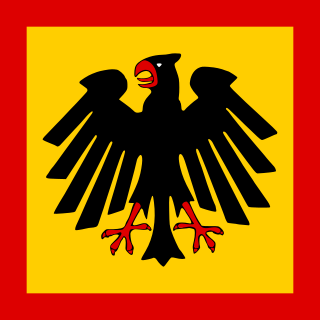
The Reichspräsident was the German head of state under the Weimar constitution, which was officially in force from 1919 to 1945. In English he was usually simply referred to as the President of Germany. The German title Reichspräsident literally means President of the Reich, the term Reich referring to the federal nation state established in 1871.

Seanad Éireann was the upper house of the Oireachtas (parliament) of the Irish Free State from 1922 to 1936. It has also been known simply as the Senate, First Seanad, Free State Senate or Free State Seanad. The Senate was established under the 1922 Constitution of the Irish Free State but a number of constitutional amendments were subsequently made to change the manner of its election and its powers. It was eventually abolished in 1936 when it attempted to obstruct constitutional reforms favoured by the government. It sat, like its modern successor, in Leinster House.
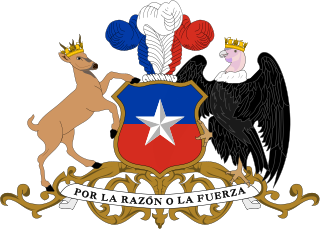
Chile holds nationwide presidential, parliamentary, regional and municipal elections.

Elections in the United States are held for government officials at the federal, state, and local levels. At the federal level, the nation's head of state, the President, is elected indirectly by the people of each state, through an Electoral College. Today, these electors almost always vote with the popular vote of their state. All members of the federal legislature, the Congress, are directly elected by the people of each state. There are many elected offices at state level, each state having at least an elective Governor and legislature. There are also elected offices at the local level, in counties, cities, towns, townships, boroughs, and villages. According to a study by political scientist Jennifer Lawless, there were 519,682 elected officials in the United States as of 2012.
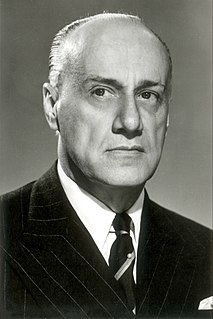
Jorge Alessandri Rodríguez was the 27th President of Chile from 1958 to 1964, and was the candidate of the Chilean right in the crucial presidential election of 1970, which he lost to Salvador Allende. He was the son of Arturo Alessandri, who was president from 1920 to 1925 and again from 1932 to 1938.

Philippine elections are of several types. The president, vice-president, and the senators are elected for a six-year term, while the members of the House of Representatives, governors, vice-governors, members of the Sangguniang Panlalawigan, mayors, vice-mayors, members of the Sangguniang Panlungsod/members of the Sangguniang Bayan, barangay officials, and the members of the Sangguniang Kabataan are elected to serve for a three-year term.

A seven-question referendum was held in Belarus on 24 November 1996. Four questions were put forward by President Alexander Lukashenko on changing the date of the country's independence day, amending the constitution, changing laws on the sale of land and the abolition of the death penalty. The Supreme Council put forward three questions on constitutional amendments by the Communist and Agrarian factions, local elections and the national finances.

A constitutional referendum was held in Chile on 11 September 1980. The proposed new constitution would replace the 1925 constitution, and was approved by over two-thirds of voters.
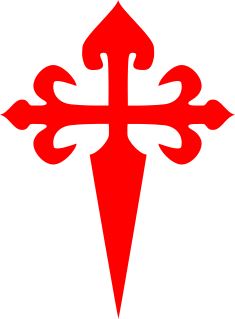
The Conservative Party of Chile was one of the principal Chilean political parties since its foundation in 1836 until 1948, when it broke apart. In 1953 it reformed as the United Conservative Party and in 1966 joined with the Liberal Party to form the National Party. The Conservative Party was a right-wing party, originally created to be the clericalist, pro-Catholic Church group.

The Parliamentary Era in Chile began in 1891, at the end of the Civil War, and spanned until 1925 and the establishment of the 1925 Constitution. Also called "pseudo-parliamentary" period or "Parliamentary Republic", this period was thus named because it established a quasi-parliamentary system based on the interpretation of the 1833 Constitution following the defeat of President José Manuel Balmaceda during the Civil War. As opposed to a "true parliamentary" system, the executive was not subject to the legislative power but checks and balances of executive over the legislature were weakened. The President remained the head of state but its powers and control of the government were reduced. The Parliamentary Republic lasted until the 1925 Constitution drafted by President Arturo Alessandri and his minister José Maza. The new Constitution created a presidential system, which lasted, with several modifications, until the 1973 coup d'état.

The Presidential Republic is the period in the History of Chile spanning from the approval of the 1925 Constitution on 18 September 1925, under the government of Arturo Alessandri Palma, to the fall of the Popular Unity government headed by the President Salvador Allende on September 11, 1973. The period spans the same time as the "Development inwards" period in Chilean economic history.

Elections in Oregon are all held using a Vote by Mail (VBM) system. This means that all registered voters receive their ballots via postal delivery and can vote from their homes. A state Voters’ Pamphlet is mailed to every household in Oregon about three weeks before each statewide election. It includes information about each measure and candidate in the upcoming election.

The election of president and vice president of the United States is an indirect election in which citizens of the United States who are registered to vote in one of the 50 U.S. states or in Washington, D.C. cast ballots not directly for those offices, but instead for members of the U.S. Electoral College, known as electors. These electors then in turn cast direct votes, known as electoral votes, for president, and for vice president. The candidate who receives an absolute majority of electoral votes is then elected to that office. If no candidate receives an absolute majority of the votes for President, the House of Representatives chooses the winner; if no one receives an absolute majority of the votes for Vice President, then the Senate chooses the winner.

A referendum to amend the Constitution of Liberia was held on 23 August 2011. Voters chose whether to ratify four amendments regarding judge tenure, elections scheduling, presidential candidate requirements and the electoral system. The National Elections Commission of Liberia (NEC) oversaw the referendum.
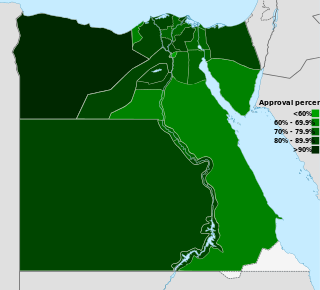
A constitutional referendum was held in Egypt on 19 March 2011, following the 2011 Egyptian revolution. More than 14 million (77%) were in favour, while around 4 million (23%) opposed the changes; 41% of 45 million eligible voters turned out to vote.
The history of the Constitution of Chile dates from 1811. There were 10 constitutional texts and a draft for a federal organization in 1826. Its common elements are the unitary form of state and presidentialism as a form of government.
In the United States, a contingent election is the procedure used in presidential elections in the case where no candidate wins an absolute majority of votes in the Electoral College, the constitutional mechanism for electing the President and the Vice President of the United States. A contingent election for the president is decided by a vote of the United States House of Representatives, and the contingent election for the vice president is decided by a vote of the United States Senate. The contingent election procedure, along with the other parts of the presidential election process, was first established in Article Two, Section 1, Clause 3 of the United States Constitution, and then modified by the 12th Amendment in 1804.



















